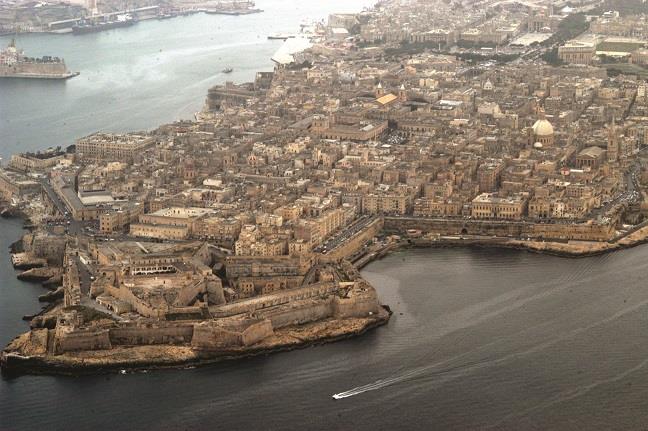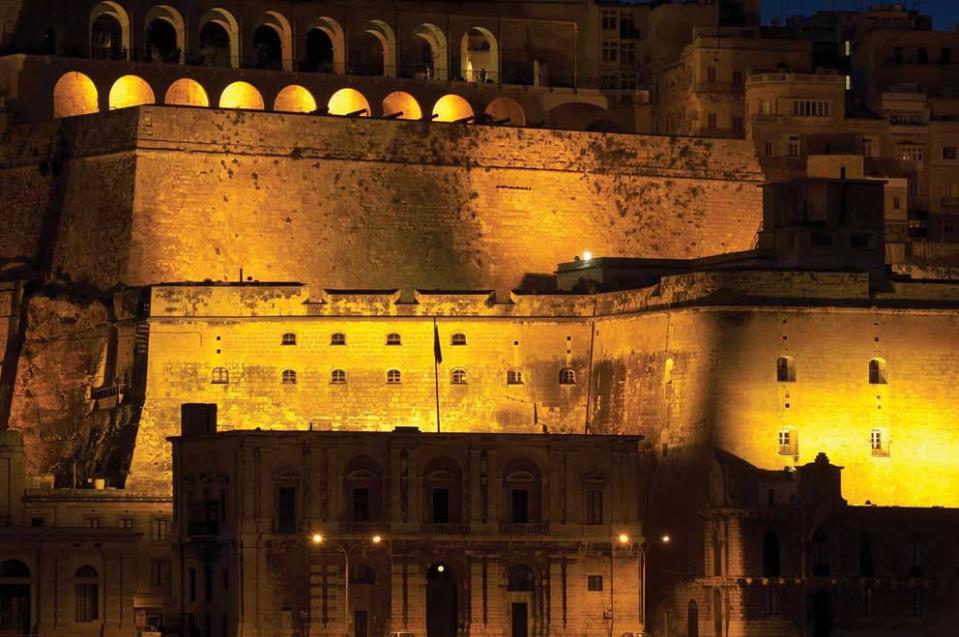Valletta 2018 needs to set realistic targets to be successful, but being a European Capital of Culture may nevertheless transform not just the city, but its - and Malta's - image abroad, according to cultural tourism expert Greg Richards.
Prof. Richards, a professor of leisure studies at Tilburg University in the Netherlands, is no stranger to European Capitals of Culture - or to Valletta itself. He has been involved in the Valletta 2018 process in various capacities, including advising the foundation on the construction of its "Imagine 18" bid book, editing a cultural mapping project and sitting on the steering committee of its evaluation and monitoring process.
As Valletta prepares to showcase itself in little more than three years' time, he argues that the most important consideration for a cultural capital is that people are clear about what they want to achieve and that, once they are, ensure that the processes and structures are in place to achieve their goals.
"And certainly, things seem to be going well in that respect," Prof. Richards maintains.
It might sound strange, considering how politicised everything in Malta can be, but according to Prof. Richards, what is perhaps the most important factor is that there is widespread political backing of the Valletta 2018 process.
Valletta 2018 is unusual in that the process is a national one as opposed to a municipal or regional one, although other small EU member states have likewise opted for a national process. And this may have helped.
"Having the political backing which ensures that the resources are in place is utterly vital to making the project a success. Had they not been in place, I suspect that the process would have been far more problematic," Prof. Richards remarks.

The situation has proved to be different in the other city that will be a European Capital of Culture in 2018, the northern Dutch city of Leeuwarden, with which the Netherlands-based Prof. Richards is familiar. As soon as the city was selected, he maintains, "the political arguments started - and much of their time has been taken up with sorting out their issues."
In fact, he adds, there have been a number of European Capitals of Culture that were unsuccessful, and the most common problem, according to him, is a lack of political support.
"It's very common for one particular group in a city to initiate a bid and then, by the time they get the title, either the (local) government has changed, or people who were not initially enthusiastic about the bid suddenly realise that there's a pot of money arriving, and want to claim their share."
Perhaps it was also fortunate that Valletta did not have to compete with other cities, as it was the obvious national choice for the first Maltese European Capital of Culture. Leeuwarden, on the other hand, had to compete with four other Dutch cities.
The lack of competition also provided another advantage. As Prof. Richards himself pointed out in a paper he presented in November 2013, greater sums of money were being spent on the bidding process, as more cities competed for the prestigious title, money that Valletta - and Malta - has saved.
Another factor in Valletta 2018's favour is that the foundation took the unusual step of beginning its work a year earlier than other European culture capitals. Leeuwarden 2018, for instance, has just begun its evaluation and monitoring process, something Valletta 2018 started a year-and-a-half ago.
The final amount of money spent on European Capitals of Culture varies widely: Liverpool, which had the title in 2008, spent around €140 million on staging the event, an amount that is clearly out of reach for Valletta.
But the amount of funds alone, Prof. Richards insists, does not determine the success of the project.

"There have been some very small cities with small budgets that were very good Capitals of Culture, because it is all about your ambition. You may be small, but you can have an ambition that matches your budget," he explains.
"I think people have to be realistic about what can be achieved, but the most important thing to make the whole process effective is to have a long-term vision."
On the other hand, however, Liverpool 2008 is arguably one of the most well-known European Capital of Cultures, while many other campaigns fail to register such a high profile. Few Maltese may know, for instance, that the Latvian capital of Riga is one of the European Capitals of Culture this year; possibly even fewer will have actually heard of the other, the northern Swedish city of Umeå.
Maltese perceptions of Valletta 2018, meanwhile, appear to be that the EU spotlight will be on the Maltese capital in three years' time. Given Malta's limitations, however, is Valletta 2018 destined for relative obscurity?
Not necessarily, according to Prof. Richards.
"It is not realistic to expect that all Europe will know that Valletta is to be a European Capital of Culture in 2018: it's almost impossible to achieve that, unless you have an enormous marketing budget. But the key things is to identify the groups that you want to influence - and which it makes sense to influence," he maintains.
As far as Malta is concerned, he adds, the most important external audience is clear: tourists. "The big question is really whether Valletta 2018 makes a contribution towards changing people's image of Malta and Valletta as tourist destinations," Prof. Richards states.

Building a successful legacy
Asked to provide an example of a successful European Capital of Culture, Prof. Richards mentions the northern French city of Lille, which had the title in 2004.
"Lille is a textbook example in that they got the political backing right, they worked together with the city and the region, they had a clear idea of what they wanted to do - like turn a coal-mining city into this modern diverse metropolis - and they also had a long-term vision," he points out.
And the city also ensured that it looked beyond 2004: the organising committee of Lille 2004 has since launched the "Lille 3000" programme, which continues to promote cultural activities within the city.
"You might see this as a lot of effort, but it is what cities should be doing anyway," Prof. Richards remarks. But a European Capital of Culture title may help set things going.
Conversely, he notes that Liverpool's year was far from a well-organised process, describing it as the worst in many respects.
"They had a great PR job of selling the story of success, but Liverpool was heading for disaster just before 2008, only to be saved at the last minute, at great expense," he says.
Thankfully, according to Prof. Richards, Valletta 2018 is shaping up to be more of a Lille than a Liverpool, but he maintains that Malta can do even more than Lille, if things are done right.
"Because it is a national effort, and because you have a greater chance, with this kind of scale, to influence things," he explains.
Attracting tourists to a European Capital of Culture, for instance, is perhaps easier for Malta, since promoting Valletta 2018 is expected to feature prominently in national tourism advertising campaigns.
Valletta 2018 also appears to have a realistic approach to the legacy it hopes to leave, Prof. Richards maintains, pointing out that there are no plans to build white elephants that will only end up being under-used.
There is also "the realisation that culture is not just about high culture, it is also about popular culture and getting the majority of people to participate in different forms of culture," he says.
"And supporting popular culture is not necessarily something that costs you vast amounts of money: if you get grassroots participation, it will be sustainable in the long-term."